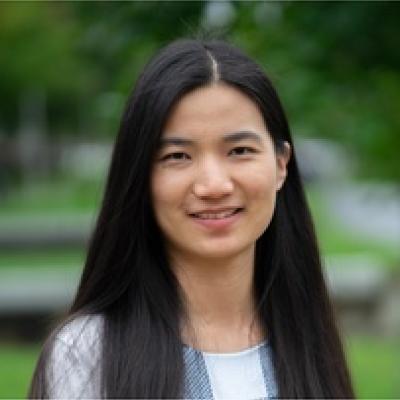Guan, Lin Awarded ADVANCE Seed Grant to Apply Machine Learning to Quantum Chemistry
Content

February 01, 2022
Hui Guan, assistant professor at the Manning College of Information and Computer Sciences, and Zhou Lin, assistant professor of chemistry at UMass Amherst, have been awarded a 2021–2022 ADVANCE seed grant for their project, “Accelerating Fragment-Based Quantum Chemistry via Machine Learning.”
The UMass ADVANCE seed grants, funded by the National Science Foundation, aim to foster the development of innovative and equitable collaborative research projects among faculty, especially women and people from populations underrepresented in science and engineering.
The team proposes to develop computational methods that are hybrids of physics-based and data-driven approaches to modeling electronic and optical properties of multi-fragment systems. Multi-fragment systems, where fragments are connected through various types of bonds and novel electronic and optical properties are exhibited, are used in many research fields such as computational, medical, chemical, materials, and biological sciences that deal with real-life functional molecules or materials.
Currently, the design of these systems often requires trial-and-error experiments that are highly labor intensive. Quantum chemical modeling, which involves building systems based on structural and electronic configurations in molecules, is being increasingly explored as a method for designing multi-fragment systems, but researchers have been held back by very high computing costs associated with the method. Guan and Lin’s approach will build on their existing work showing that machine learning can solve problems inherent in quantum chemical modeling of these systems, proposing to build graph convolutional networks to achieve significant computational cost reduction while maintaining performance.
“We selected graph convolutional networks as our machine learning model because it works so well with a multi-fragment system,” Guan explains. “Its structure of nodes and edges aligns naturally with the representation and description of fragments and many-fragment interactions.”
Guan’s research lies in the intersection of machine learning and programming systems, with a current focus on both algorithm and system optimizations of deep multitask learning and graph machine learning. She joined the computer science faculty of UMass Amherst in 2020 and received her doctorate in electrical engineering from North Carolina State University in 2020. She is a member of the Programming Language and Systems at Massachusetts (PLASMA) lab at UMass.
Lin directs a research team at UMass Amherst’s College of Natural Sciences that focuses on the development and application of fragment-based quantum chemistry techniques to allow scientists to better investigate complex systems. She joined the chemistry department at UMass Amherst in 2020 and received her doctorate in chemical physics from The Ohio State University in 2015. Prior to joining UMass Amherst, she was a postdoctoral scholar at University of California, Berkeley and a postdoctoral associate at Massachusetts Institute of Technology.
Here is a complete list of 2021-2022 ADVANCE seed grant recipients.
